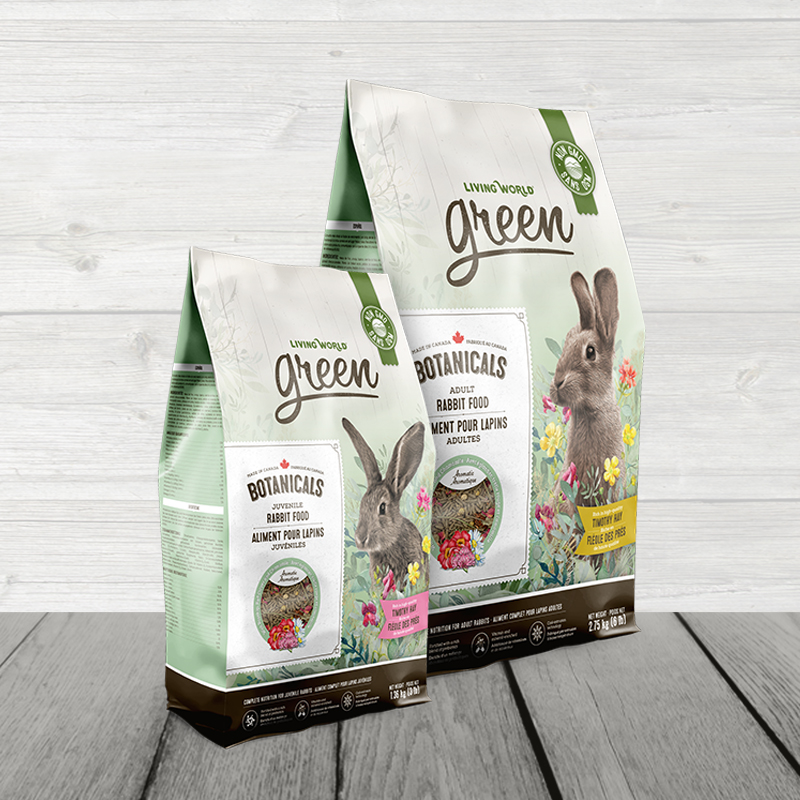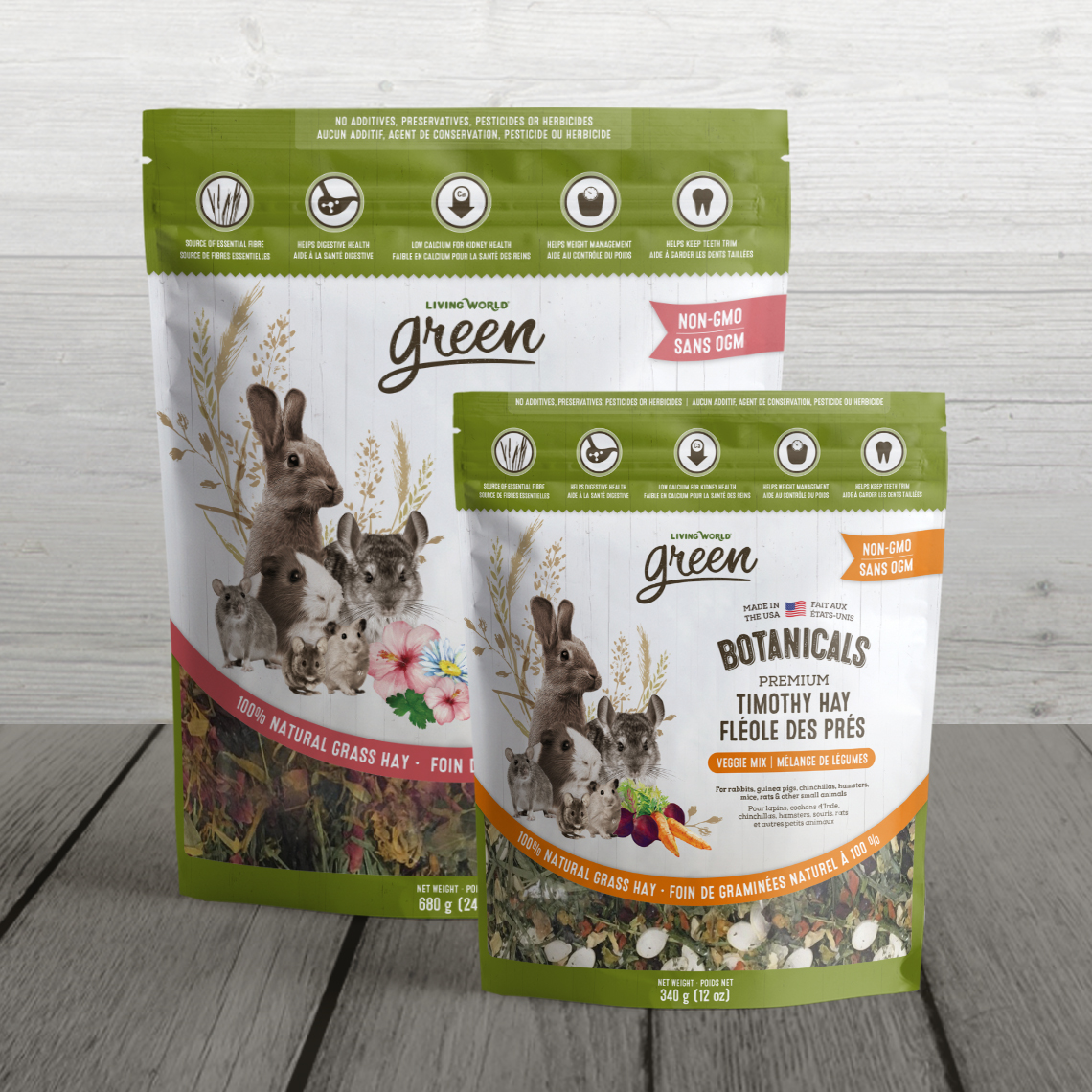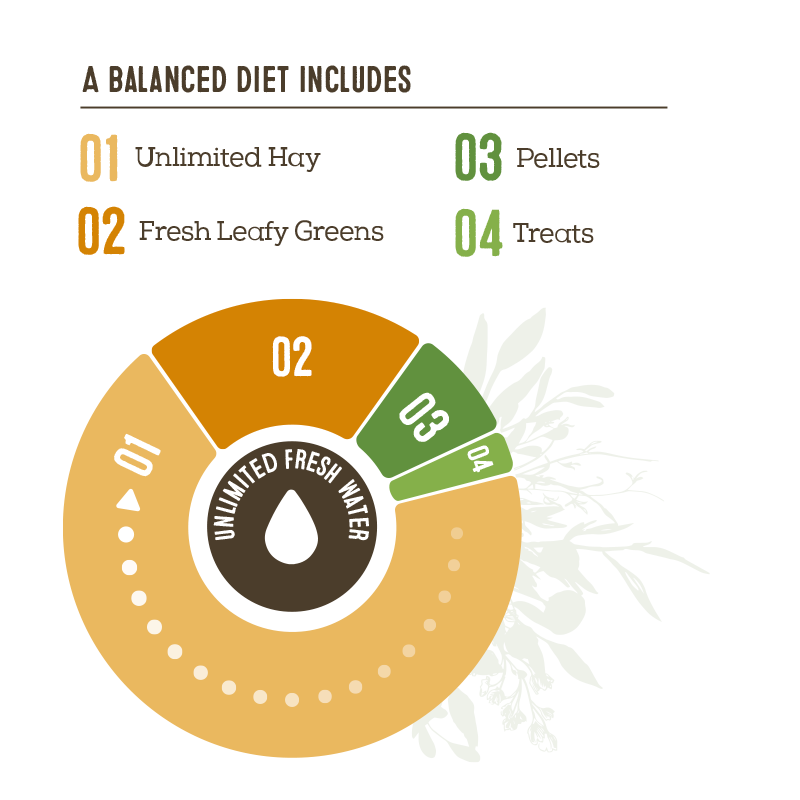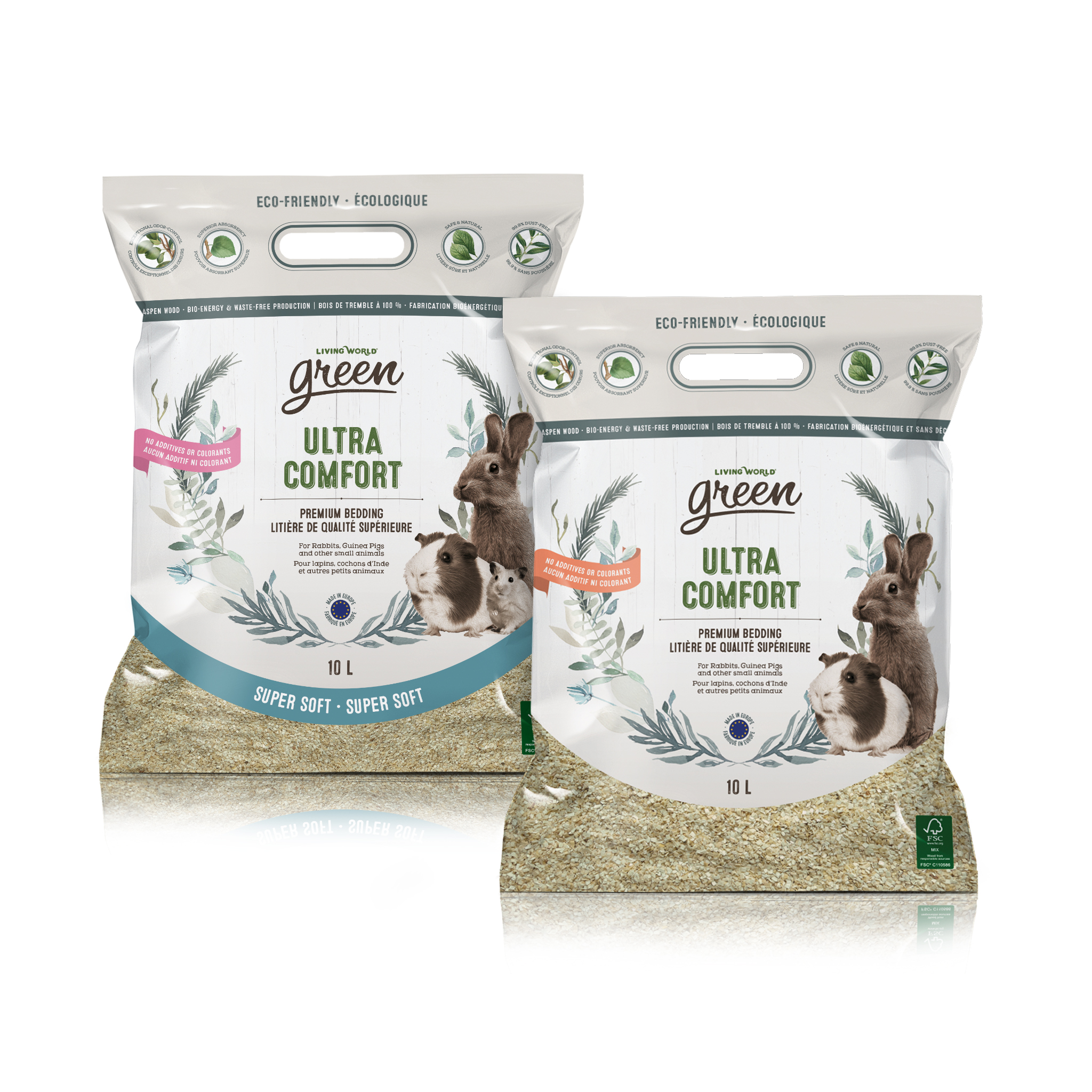How to care for your pet rabbit
If you have a pet rabbit, then you already know how curious, adorable, and intelligent they are. Their highly sociable personalities make them a great option for families (with adult supervision of course).
Rabbits enjoy human contact and interaction and given the right nutrition, care and commitment, can live anywhere between 7 and 10 years – even longer in some cases.
Keeping rabbits safe and healthy is essential to keeping them happy. They require plenty of space and exercise but because they are prey animals by nature, they also need somewhere safe and secure to retreat to or hide from the hustle and bustle of a busy household.
Need some pointers on rabbit care? Read on for information and tips for keeping your bunny healthy and happy:
DIET
A balanced diet is essential for a rabbit’s health and should include the following:
A high-quality extrusion food
Selective eating can be a problem when feeding cereal mixes to rabbits. Like children given a choice, they choose to eat all the tasty, high-in-sugar and starchy ingredients, leaving behind the nutritious, high-fibre grains that are necessary to keep your small pet healthy.
An excellent way to counter selective eating is to feed small amount of extruded food that provides all the essential nutrients necessary for optimal health. Extruded foods prevent selective eating by combining all the healthy ingredients, fibre and essential vitamins and minerals into one convenient pellet to ensure the animal gets all the required nutrition.
Unlimited amounts of grasses and hays
Quality hay is an important part of a small animal’s diet, providing a nutritious and essential source of fibre to help support digestive health and prevent obesity. Hay helps maintain teeth and minimize dental disease, while providing enrichment and activity by encouraging natural foraging behaviour.
It should be noted that alfalfa (which is not actually hay but part of the legume family) is rich in protein and calcium and should only be offered to adult rabbits in limited quantities. Given too much, animals will ingest excesses of nutrients and may become obese, both of which may lead to health issues. However, alfalfa can be offered in larger quantities to young rabbits and gestating or lactating females.
Healthy enrichment foods
Although they should be fed in limited quantities, enrichment foods are an important part of your rabbit’s diet. They provide additional nutrients and encourage natural foraging behavior; overall they help to maintain a healthier lifestyle for your pet rabbit.
Healthy enrichment foods include fresh, leafy greens and other vegetables and fruit such as apple, pineapple, banana, melon, carrot chunks, dandelion greens, parsley, broccoli florets and turnip peelings.
Note: Fruits and vegetables (such as carrots) high in sugar should be offered in very limited quantities as these are considered treats.
Occasional treats
Given in moderation, treats satisfy a rabbit’s foraging instincts and help keep teeth trim, while providing variety to its diet. Feeding too many treats will unbalance your rabbit’s diet and can lead to obesity.
Fresh Water
One of the most important components of a rabbit’s diet is water. A constant supply of fresh water is essential for the health of your rabbit. It keeps your pet hydrated, its digestive system working properly and helps prevent gastrointestinal and urinary illnesses.
HOUSING
Your rabbit’s cage should:
- Include a solid floor.
- Be large enough to accommodate appropriate cage accessories such as litter box, hideout, hay wheel or hay rack, food dish and water bottle.
- Allow for separate areas for eating, sleeping, exercising or going to the litter box.
- Be designed for safety and comfort and have convenient access for:
- Interacting with your rabbit
- Easy maintenance with minimal litter spills
- Safely removing and replacing your rabbit
LITTER BOX TRAINING
Most rabbits are adaptable to litter box training. The sides of the litter box should be low enough to enable your rabbit to hop in and out easily, but high enough to contain the litter.
Litter training your rabbit has a number of advantages:
- Helps to keep the rabbit clean
- Litter box training allows for more hygienic “out-of-cage” playtime.
- Toys and accessories will be kept cleaner
- Easier to monitor feces and urine to help detect both urinary tract and gastrointestinal diseases
BEDDING
Bedding provides a secure substrate that encourages burrowing and is comfortable for sleeping and nesting. The ideal bedding is absorbent, dust-free and provides optimal hygienic conditions. It should not contain scented oils or chemicals which can be harmful to the respiratory system of your pet rabbit.
Using food such as hay for bedding is unhygienic, as the animal may sit in it, soil it and eat it.
Changing bedding regularly to eliminate odors, fungus and bacteria reduces aggression and maintains a healthy environment. This will also help you monitor the daily urine and feces that can highlight gastrointestinal or urinary illnesses.
CHEWS AND TOYS
It’s important to provide rabbits with something they can gnaw in order to keep their continuously growing teeth trim and healthy.
HEALTH CONCERNS
Monitoring your rabbit’s health daily will help you spot any signs of illness before they get serious. A sick rabbit usually seems tired, is less active, and loses its appetite. Litter training your rabbit will help you monitor a healthy amount of feces and urine every day. Training your rabbit to drink from a water bottle will also help you monitor how much water he consumes daily.
Pet rabbits are often challenged with preventable health concerns such as:
- Obesity
- Dental complications
- Gastrointestinal & urinary illnesses
OBESITY
Pet rabbits over six months old can often be challenged with obesity, which can lead to health complications. Therefore, it is important to establish healthy eating habits as young as possible.
Here are a few tips to help your rabbit maintain a healthy weight:
• Offer an optimal diet (healthy base diet, unlimited amounts of healthy hays & grasses, healthy enrichment foods & occasional treats).
• Offer a healthy diet that is appropriate for your rabbit’s life stage and lifestyle
• Offer a lifestyle that promotes exercise (in a rabbit run, a rabbit-proof room or exercised with a harness)
Allowing your rabbit to have play time outside of its cage can be very beneficial for its health. Daily exercise is important for your bunny’s digestive health, it helps prevent obesity and it provides enrichment and activity by encouraging natural foraging behavior.
DENTAL COMPLICATIONS
A rabbit’s teeth are constantly growing – up to 13 cm a year. It’s important to provide your bunny with hay and a variety of chewable toys and accessories to stop teeth from quickly becoming overgrown.
How to keep your rabbit’s teeth healthy:
• Morsels of hard textured food encourage natural grinding of teeth
• Wooden chews
• Sea grass natural accessories
• Hay
GASTROINTESTINAL AND URINARY ILLNESSES
Lazy gut is a very common condition that, if left untreated, can lead to gut stasis (static intestine), which is life-threatening.
Lazy gut is not the result of a rabbit ingesting its own hair during grooming. A healthy rabbit should be able to digest its hair without any impaction. With a lazy gut, a hair ball cannot pass through the gastrointestinal tract, causing the impaction.
Bladder and kidney disease can cause discomfort, pain and can be life-threatening. It can occur when an excess of calcium in the diet deposits in the bladder (commonly referred to as sludge or sand). Providing your rabbit with foods that contain a minimal amount of calcium can help to ensure the health of your pet, while preventing kidney and urinary tract illnesses.
Looking for more practical information about basic rabbit care?





